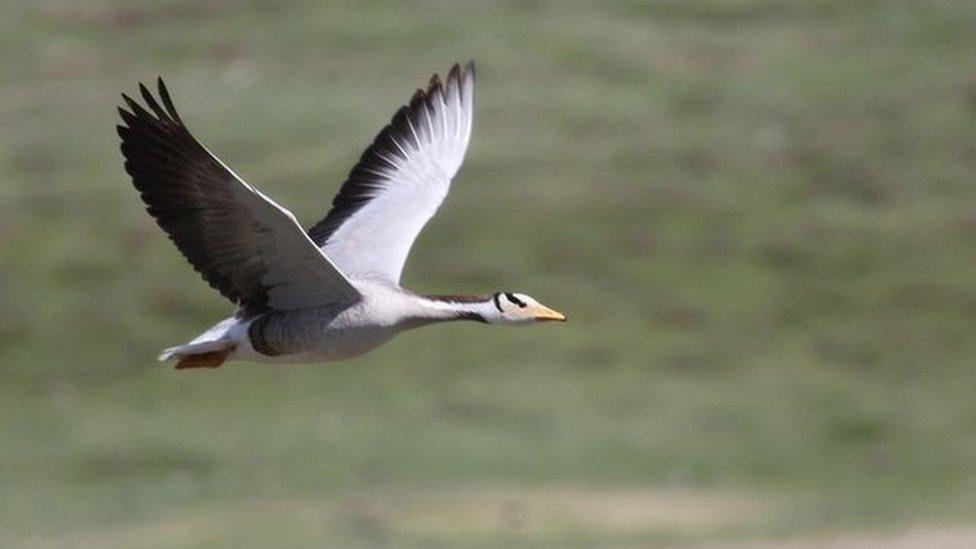Durham University study finds migrating birds spending longer in Europe
- Published
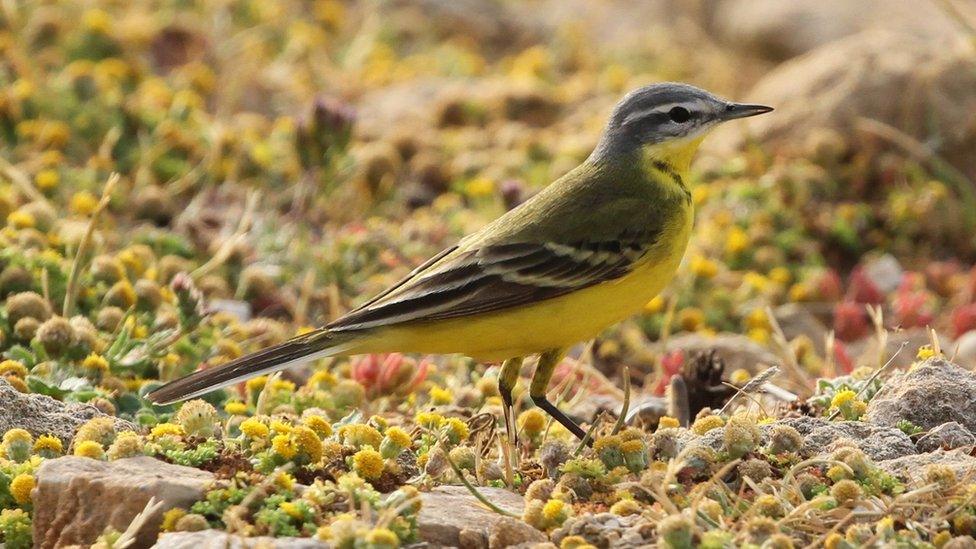
The yellow wagtail was one of the breeds studied by Durham University
Migratory birds are spending longer in Europe, which raises questions over whether some will stop winter migration altogether, scientist say.
A study by Durham University found a number of trans-Saharan flyers are spending up to 60 days a year more in European breeding grounds than before, possibly due to climate change.
The scientists studied 50 years of data from The Gambia and Gibraltar.
Breeds affected include nightingales, willow warblers and several wagtails.
The study, published in the journal Global Change Biology, external, used data collated by ornithologists in The Gambia between 1964 and 2019 and The Gibraltar Ornithological and Natural History Society between 1991 and 2018 to explore changes in arrival and departure dates over time.
Whilst previously it had been thought that birds timed migration based on day length, a university spokesman said the study's findings suggest that birds are also making "more nuanced decisions", responding to factors such as "changes in climate and available vegetation".
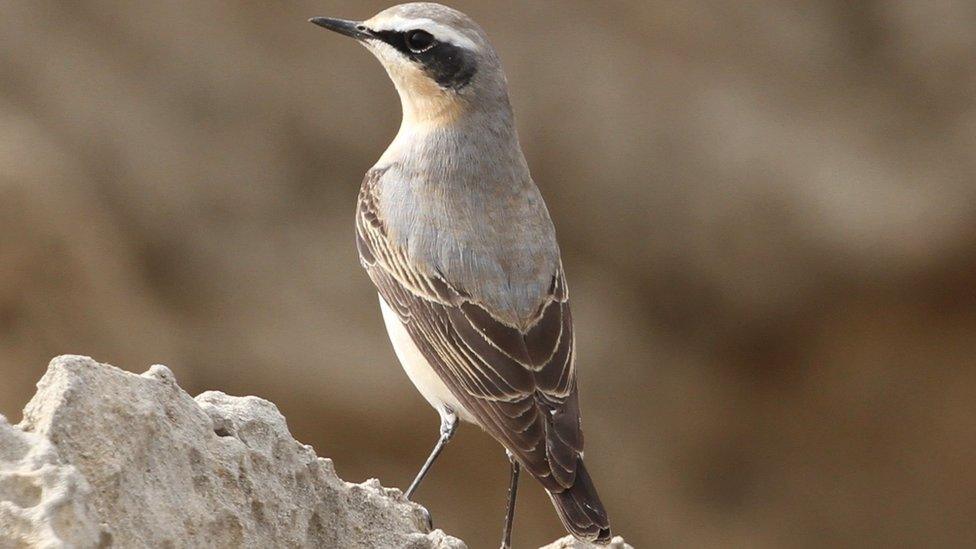
The northern wheatear has also been spending longer in Europe according to the study
Lead author Kieran Lawrence of Durham's department of biosciences said: "If the trends we have seen in this study continue we may see that, in time, some birds will spend no time at all in sub-Saharan Africa, and instead spend the full year within Europe.
"The changes in migratory habits we are already seeing could lead to longer breeding seasons for these species, as well as knock-on effects on other species, both here in the UK and in the traditional winter migration destinations."
He said there could be increased competition for food in Europe during winter and autumn if the birds do not migrate.
Meanwhile, the loss of the birds in Africa would have "ecosystem implications" around insect consumption, speed dispersal and pollination.
Project lead, Professor Stephen Willis, said his team will develop a new model to simulate migrations and future scenarios.

Follow BBC North East & Cumbria on Twitter, external, Facebook, external and Instagram, external. Send your story ideas to northeastandcumbria@bbc.co.uk, external.
Related topics
- Published23 June 2021
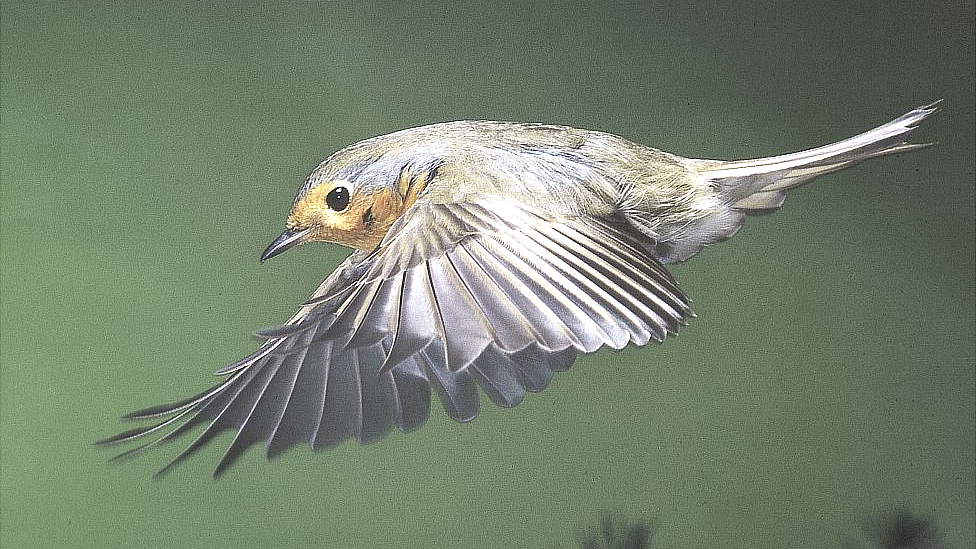
- Published18 February 2020
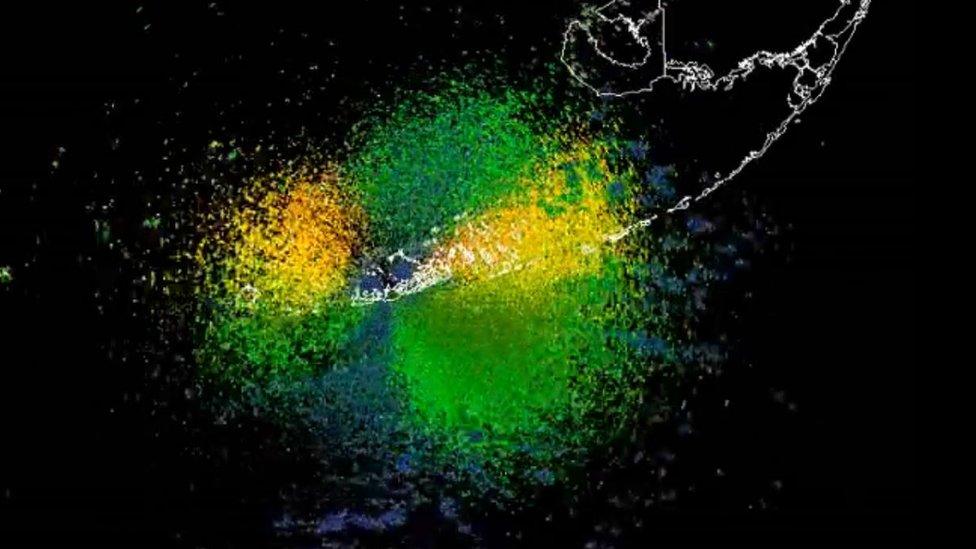
- Published15 January 2015
